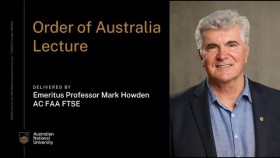Who’ll pay for the losses and damages caused by climate change?
Unfortunately, it’s the poorer countries of the world, with the least financial resources, who tend to be most exposed to the damaging impacts of climate change. Yet it’s the wealthier, developed world who have predominantly caused climate change by emitting vast amounts of greenhouse gases.
This has been a bone of contention for the developing world in international climate negotiations since the 1990s. In 2015 at the Conference of the Parties in Paris, for the first time, loss and damage from climate change was formally recognized under the United Nations Convention on Climate Change (UNFCCC), although it fell short of establishing any liability or compensation.
Climate related loss and damage includes both sudden natural disasters, such as hurricanes, and slow-onset events, such as sea level rise. The damage can include both economic and non-economic losses, for example the possibility of losing one’s cultural identity due to relocation, sovereign rights or the right to self-determination.
Melanie Pill is a PhD student (in the Fenner School of Environment & Society at ANU) whose research is focused on financing loss and damage from climate change in small island developing states (SIDS). She’s just been awarded a Climate Change Institute PhD supplementary scholarship that’s been designed to encourage cross-disciplinary research.
“I was drawn to this area because it’s a new, emerging and extremely dynamic field, which was lacking in research on how to address the challenges,” said Melanie.
At this stage there is no legal definition of loss and damage, nor is there any formal mechanism for funding it. For example, organisations such as the Green Climate Fund currently only have a mandate to fund climate mitigation and adaptation.
“A common description of the loss and damage conundrum is when you can’t adapt any further, that’s when loss and damage occurs, ” continued Melanie.
The research aims to be extremely practical, so that it can be used in the ‘real world’ by practitioners, governments and negotiators.
“My research will identify the needs of SIDS in coping with loss and damage and whether there is a misalignment with international negotiations and decisions,” she said. “The end goal is to create a holistic framework that covers financing of all aspects of loss and damage and that can be adopted internationally. It needs to encompass the allocation of funding for human mobility, slow onset events and weather related natural disasters”.
Melanie’s research is truly cross-disciplinary and she’s working with economists, policy, climate science, adaptation and legal experts from across the ANU. She’s also seeking input from international actors, NGOs and negotiators in this area. The scholarship will significantly help with travel and building links between Australia and the Northern Hemisphere.
After she finishes her PhD, Melanie would like to continue working on loss and damage, either for the United Nations or by undertaking further research.










